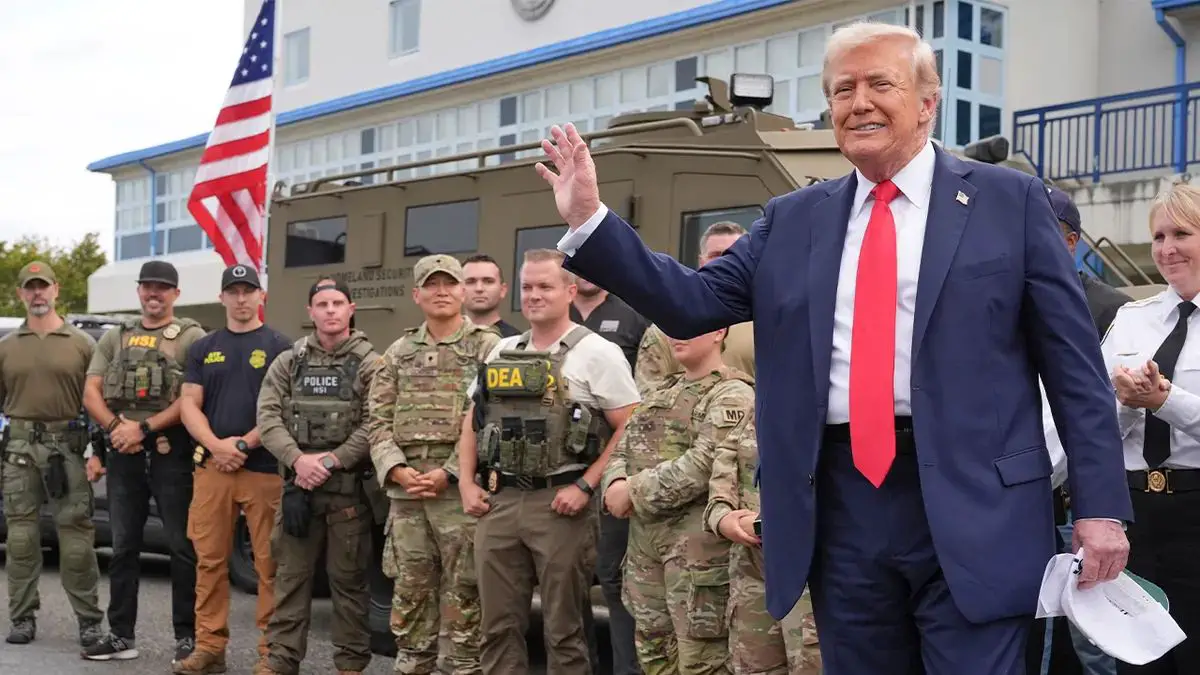A new poll finds that Americans see crime as one of the nation’s biggest problems, and former President Donald Trump is getting stronger marks than anyone else for how he has handled it.
The AP-NORC survey, conducted in late August, shows that 81 percent of adults believe crime in large cities is a major problem. More than half of respondents, 53 percent, say they approve of Trump’s handling of crime. It is his best showing on any issue tested in the poll.
While views on crime are split along partisan lines, the numbers highlight how Trump’s law-and-order message is landing with voters heading into the 2026 midterms and looking toward the 2028 presidential race.
Key Poll Findings
- Eight in ten Americans consider crime in big cities to be a major problem.
- A majority, 53 percent, approve of Trump’s approach to crime, higher than his ratings on the economy or immigration.
- Only about one in three support a full federal takeover of local police departments, but support increases for the National Guard assisting city law enforcement.
- Roughly 80 percent of Republicans support sending the Guard to high-crime cities, while about half of independents agree.
- Just under half of Democrats say crime in cities is a major problem, showing how the issue is viewed differently across party lines.
Trump’s Message Resonates
Trump has leaned heavily on crime as a centerpiece of his political comeback. From ordering federal control of policing in Washington, D.C., to authorizing National Guard deployments in several cities, his decisions have drawn both criticism and praise.
Democrats and some civil liberties groups accuse him of overreach, warning that federal control of local policing risks undermining democracy. But many voters see the moves as overdue. For them, Trump’s willingness to act where local leaders seem hesitant has made him appear decisive at a time of deep unease about safety.
According to The Independent, even Americans who do not favor a permanent federal role in policing still express support for temporary measures such as Guard deployments when cities face spikes in violence. That distinction, between long-term control and immediate response, has been central to Trump’s argument that his administration is restoring order, not taking away freedoms.
Public Fear Lingers
Even in places where crime data shows some improvement, public concern remains high. Analysts note that perception matters as much as reality. Residents in Washington, D.C., for example, have seen declining violent crime numbers this summer, but the federalization of law enforcement there earlier this month was widely supported outside the city. CNN reported that Trump’s action in the capital has become a defining example of his broader approach.
For many voters, Trump’s approach matches that expectation, whether through sending troops into trouble spots or pushing federal oversight when local officials fall short.
Democrats Lose on Crime
For Trump, crime could be the issue that defines his next campaign. His approval on handling crime outpaces his standing on nearly every other major issue, including the economy and immigration, both traditional Republican strengths.
The poll suggests he has carved out an opening with independents, many of whom support the use of the National Guard but remain skeptical of other federal interventions. Among Republicans, his support on crime is overwhelming.
As cities continue to wrestle with rising public anxiety about safety, Trump’s law-and-order stance looks less like a relic of the 2020 campaign and more like a fresh rallying point.
For voters who feel unsafe walking their own neighborhoods or watching nightly news reports of violence, the message is simple: Trump is promising to bring back order. The latest numbers suggest that the promise is working.
